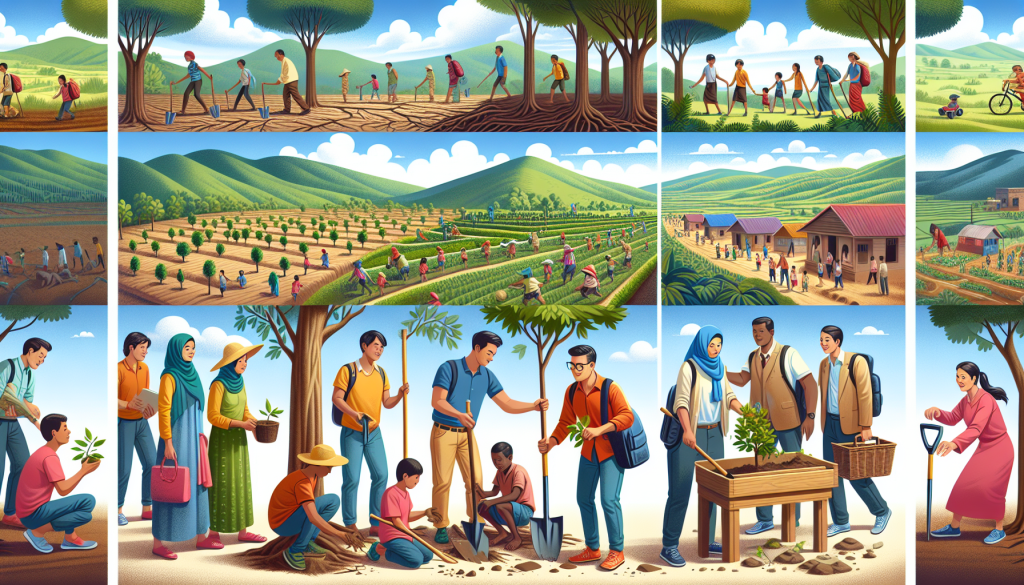
The Rise of Regenerative Travel: Vacations That Give Back to Communities
The travel industry has long been criticized for its negative impact on the environment and local communities. As travelers become more aware of the impact of their trips, a new trend has emerged: regenerative travel. This type of travel focuses on giving back to the communities and environments that we visit, instead of just taking from them. In this article, we’ll explore the rise of regenerative travel and how it is changing the way we think about vacations.
The Importance of Regenerative Travel
Traditional tourism typically involves large numbers of tourists visiting popular destinations and staying in all-inclusive resorts that are often owned by international corporations. While this may bring economic benefits to the region, it also leads to issues such as overdevelopment, environmental degradation, and loss of cultural identity. Regenerative travel, on the other hand, prioritizes sustainability and responsibility towards local communities and ecosystems. It aims to create a more positive impact on the places we visit, rather than simply exploiting them for personal pleasure.
The Concept of Regenerative Travel
Regenerative travel is based on the idea of creating a reciprocal relationship between travelers and the places they visit. It promotes the concept of leaving a place better than you found it, and actively contributing to the well-being of local communities. This can take various forms, from volunteering in conservation or community projects, choosing locally owned accommodations and restaurants, or purchasing local goods and services.
One example of regenerative travel is through ecotourism. This type of travel focuses on sustainable and responsible travel to natural areas that conserve the environment and improve the well-being of local people. It often involves activities such as wildlife conservation, community-based tourism, and cultural experiences.
The Benefits of Regenerative Travel
Aside from its positive impact on local communities and ecosystems, regenerative travel also offers a more meaningful and authentic travel experience for tourists. By getting involved in local projects and interacting with community members, travelers can gain a deeper understanding and appreciation for the destination they are visiting. This type of travel also allows for more cultural exchange and immersion, creating a more enriching and memorable experience.
Furthermore, regenerative travel has the potential to bring economic benefits to local communities by supporting small businesses and creating employment opportunities. It also helps to preserve and promote local cultures, traditions, and practices, which may otherwise be eroded by mass tourism.
The Future of Regenerative Travel
As consumers become more conscious of their travel choices, the demand for regenerative travel is expected to increase. Major travel companies and destinations are also recognizing the importance of sustainability and incorporating it into their practices. For example, some hotels now offer sustainable practices such as composting, using renewable energy sources, and supporting local community projects.
In addition, travelers themselves are taking more responsibility for their environmental impact by opting for eco-friendly activities and accommodations. Social media and online platforms have also played a significant role in promoting and raising awareness for regenerative travel.
Conclusion
The rise of regenerative travel marks a new era in the travel industry. It challenges the traditional concept of tourism that prioritizes personal gratification over the well-being of local communities and ecosystems. As more people become aware of the impact of their travels, regenerative travel is gaining momentum as a more responsible and sustainable way to explore the world. So, the next time you plan your vacation, consider choosing a regenerative travel experience and make a positive impact on the places you visit.
Remember, traveling is a privilege and with it comes the responsibility to protect and preserve the world we live in.
